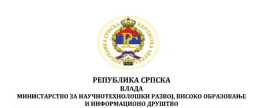Matrix Form of Compromising Optimization of Functional Nutrition
Volume 4, Issue 2 (2014)
Volume 4, Issue 2 (2014)
Matrix Form of Compromising Optimization of Functional Nutrition
Abstract:
The function of human nutrition is to provide necessary nutrients for its optimal functioning. It is a well-known fact that nutrition requirements differ based on the health, physical constitution, age, gender, psycho-physical load and other internal and external factors of each individual.
A modern way of life is characterized, inter alia, as of poor quality, irregular diet in combination with intensive psychological loads, predominantly a static life style (“sitting”), insufficient exercise and lack of outdoor activities. Such life style intensively correlates with numerous health problems where most of such problems can be prevented, even “treated” by formulating an adequate diet whose structure and quality increase the functional potency of the human organism as a complex system.
One of the basic characteristics of such system is reflected in the fact that changes in one element are directly or indirectly reflected on the system as a whole. Attempts to “prescribe” an adequate diet programs are numerous, which to a great extent can cause the resistance of a consumer since such programs are related to the limitations, exclusion of some nutrients, and impossibility or inaccessibility of the prescribed diet components, non-adaptiveness and inflexibility of the programmed diet regimes.
Nutrition of human organisms, as complex systems, should provide an appropriate quality expressed and measured by the content of carbohydrates, fat, proteins, water, vitamins and minerals on one hand, and needs, possibilities, accessibility of certain nutrients, affordability and personal preferences of individual consumers on the other hand. The increase of level of functionality, adaptiveness, and accessibility of a diet program adjusted to individual requirements and needs, along with the maintenance of necessary high quality and quantity of the same, can be achieved by using optimizing models from the sphere of compromising programming.
A modern way of life is characterized, inter alia, as of poor quality, irregular diet in combination with intensive psychological loads, predominantly a static life style (“sitting”), insufficient exercise and lack of outdoor activities. Such life style intensively correlates with numerous health problems where most of such problems can be prevented, even “treated” by formulating an adequate diet whose structure and quality increase the functional potency of the human organism as a complex system.
One of the basic characteristics of such system is reflected in the fact that changes in one element are directly or indirectly reflected on the system as a whole. Attempts to “prescribe” an adequate diet programs are numerous, which to a great extent can cause the resistance of a consumer since such programs are related to the limitations, exclusion of some nutrients, and impossibility or inaccessibility of the prescribed diet components, non-adaptiveness and inflexibility of the programmed diet regimes.
Nutrition of human organisms, as complex systems, should provide an appropriate quality expressed and measured by the content of carbohydrates, fat, proteins, water, vitamins and minerals on one hand, and needs, possibilities, accessibility of certain nutrients, affordability and personal preferences of individual consumers on the other hand. The increase of level of functionality, adaptiveness, and accessibility of a diet program adjusted to individual requirements and needs, along with the maintenance of necessary high quality and quantity of the same, can be achieved by using optimizing models from the sphere of compromising programming.
Keywords:
individual needs, nutrition quality, compromise programming, functional potency
Full Text:
References:
- Landika, M. (2008). Kvantitativne metode. Banja Luka: Panevropski univerzitet Apeiron.
- Landika, M. (2010). Kvantitativni modeli u funkciji usklađivanja upravljačke vizije i realnosti. Neobjavljena doktorska disertacija. Banja Luka: Univerzitet u Banjoj Luci, Ekonomski fakultet.
- Mikić, Đ. (2007). Sistemi - struktura i upravljanje. Banja Luka: Panevropski univerzitet ''Apeiron''.
- Petrić, J. J. (1981). Operaciona istraživanja I. Beograd: Fakultet organizacionih nauka.






